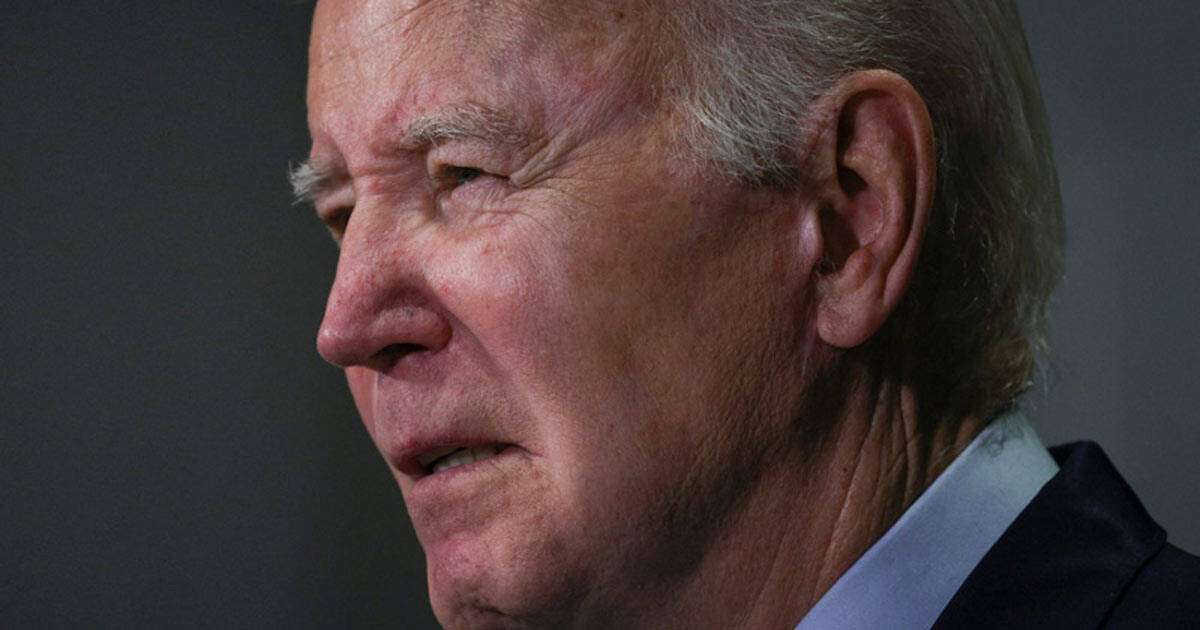In a bold move to curb what many critics see as a troubling abuse of executive power, Rep. Addison McDowell (R-NC) has introduced a new bill aimed at ending the controversial use of autopen devices for signing important presidential documents.
The bill, titled the “Ban on Inkless Directives and Executive Notarizations Act of 2025” or the BIDEN Act, would ensure that only the sitting president himself could sign engrossed bills, executive orders, pardons, and commutations, cutting off the ability for staffers or automated devices to act on the president’s behalf.
The proposed law is a direct challenge to the precedent set by former President Joe Biden, who has faced growing criticism for his extensive use of an autopen, an automated device that replicates the signature of the POTUS.
According to McDowell, this practice undermines the authority of the office and raises questions about who is really making decisions in the Oval Office.
Under the BIDEN Act, the law would be amended to explicitly state that no one other than the president can lawfully sign bills, executive orders, or pardons, and the use of automatic signing devices like the autopen would be banned.
The bill also specifies that any document signed using such a device would have no legal force or effect.
“No engrossed bill, Executive Order, or pardon or commutation that was signed in violation of section 301 of title 3, United States Code, including any such an engrossed bill, Executive Order, or pardon or commutation signed prior to the effective date of this Act, may be considered to have any force or effect,” the bill reads.
This legislation comes amid ongoing concerns over President Biden’s mental competency and his reliance on aides and bureaucrats to carry out the duties of his office.
McDowell has made it clear that the goal of the BIDEN Act is to prevent “rogue bureaucrats” from taking advantage of a “mentally incompetent President” to seize the authority entrusted to the Oval Office.
In a statement included with the press release about the bill, McDowell wasted no time making his point about Biden’s presidency.
“The American people elect a President to run the country, not a cabal of woke staffers,” McDowell said.
“Sadly, that is exactly what the American people received under Joe Biden.”
McDowell continued by criticizing Biden for his lack of oversight and leadership, suggesting that Biden’s “legacy will forever be tied to the lack of oversight he provided to the presidential autopen.”
He also stated that the BIDEN Act would ensure that bureaucrats can no longer use Biden’s alleged mental decline as an excuse to seize power from the presidency.
The introduction of McDowell’s bill comes after a series of reports raising concerns about Biden’s extensive use of the autopen.
Critics argue that these devices are undermining the democratic process and giving bureaucrats too much influence over key presidential decisions.
However, Biden has fiercely denied these accusations.
In a statement last month, the former president defended his actions, saying:
“Let me be clear: I made the decisions during my presidency.
“I made the decisions about the pardons, executive orders, legislation, and proclamations.
“Any suggestion that I didn’t is ridiculous and false.”
Biden’s response may be an attempt to quell growing concerns about his physical and mental fitness for office, but many remain skeptical about the amount of control he truly exercised during his time in office.
At the core of McDowell’s bill is a desire to restore faith in the presidency and the decision-making process.
The use of autopen devices, McDowell argues, undermines the public’s trust in the office of the president and weakens the executive branch’s power.
For many conservatives, this bill represents a critical step toward ensuring that future presidents are held accountable for their actions and that decisions of national importance are not left to automated devices or unelected bureaucrats.
McDowell’s proposed legislation is likely to face stiff opposition from Democrats, especially given the political stakes of the upcoming election cycle.
However, it’s clear that this issue is not just about the technicalities of document signing; it’s about who controls the White House and whether the president can truly be said to be in charge of the nation’s affairs.
If passed, the BIDEN Act could set an important precedent for the future of executive power in the United States.
While the bill may seem like a direct attack on Biden, it speaks to broader concerns about the integrity and accountability of the office of the president.
The idea that a sitting president’s decisions could be made by an automated device raises serious questions about the legitimacy of executive actions and whether those actions truly reflect the will of the people.
For Trump supporters and conservatives, the BIDEN Act represents a powerful pushback against the growing influence of unelected bureaucrats and a necessary step in reclaiming control of the presidency.
As the bill makes its way through Congress, it will undoubtedly continue to spark debate about the future of presidential authority and the responsibility of elected leaders to make decisions that affect the nation.

Our comment section is restricted to members of the Slay News community only.
To join, create a free account HERE.
If you are already a member, log in HERE.